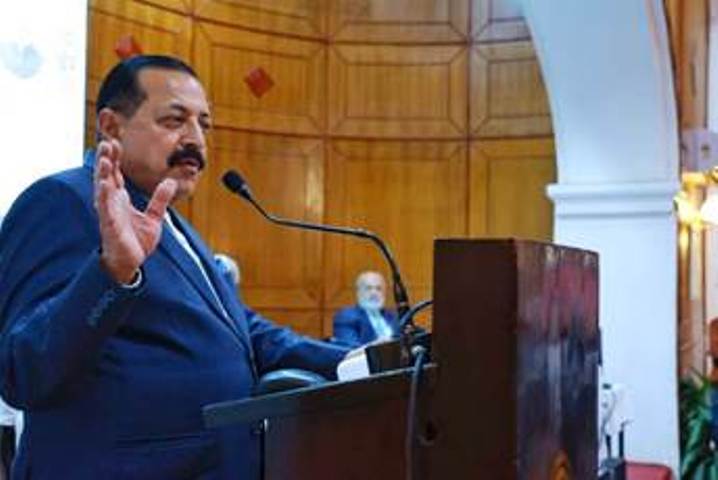Union Minister Dr. Jitendra Singh announced the Union Cabinet's approval of the groundbreaking BioE3 (Biotechnology for Economy, Employment, and Environment) Policy, positioning India as a global leader in the biotech sector. The policy, hailed as transformative, marks a significant shift in India's manufacturing landscape, emphasizing the transition to sustainable bio-based industries.
Dr. Jitendra Singh commended Prime Minister Narendra Modi's visionary leadership for spearheading the policy, which aims to propel India's economy, foster innovation, create jobs, and meet environmental commitments. He noted that India's bioeconomy has seen exceptional growth, soaring from $10 billion in 2014 to over $130 billion in 2024, with projections to reach $300 billion by 2030. The BioE3 Policy is expected to further accelerate this trajectory, significantly contributing to the 'Make in India' initiative by promoting the development of bio-based products with minimal carbon footprints.
The BioE3 Policy is designed to tackle global challenges such as climate change and the depletion of non-renewable resources by:
Facilitating the transition from chemical-based industries to sustainable bio-based models.
Promoting a circular bioeconomy.
Aiming for net-zero carbon emissions through innovative waste utilization from biomass, landfills, and greenhouse gases.
Encouraging the development of bio-based products and expanding job creation.
Key features of the policy include the promotion of entrepreneurship in sectors like bio-based chemicals, smart proteins, precision biotherapeutics, climate-resilient agriculture, and carbon capture. It also focuses on establishing state-of-the-art bio manufacturing facilities, bio foundry clusters, and Bio-AI hubs, which will be crucial in advancing India's biotechnology capabilities.
Dr. Jitendra Singh highlighted the importance of biomanufacturing hubs, which will serve as centralized facilities for the production, development, and commercialization of bio-based products. These hubs are expected to bridge the gap between laboratory-scale and commercial-scale manufacturing, fostering collaboration among startups, SMEs, and established manufacturers. They will also play a crucial role in the large-scale production of products like mRNA-based vaccines and proteins.
The policy emphasizes ethical biosafety considerations and aligns with international standards for global regulatory harmonization. Bio-AI hubs, integrating AI to analyze large-scale biological data, will drive innovation in areas like gene therapies and food processing solutions.
Dr. Jitendra Singh also underscored the policy's potential for substantial employment generation, particularly in tier-II and tier-III cities where bio manufacturing hubs will be established. These hubs will leverage local biomass sources, spurring economic development in these regions.
Concluding the briefing, Dr. Jitendra Singh reiterated that the BioE3 Policy, by investing in the economy, environment, and employment, aligns with India's vision of a 'Viksit Bharat' (Developed India). The policy sets a benchmark for how effective science-driven policies can catalyze national development and sustainability.











